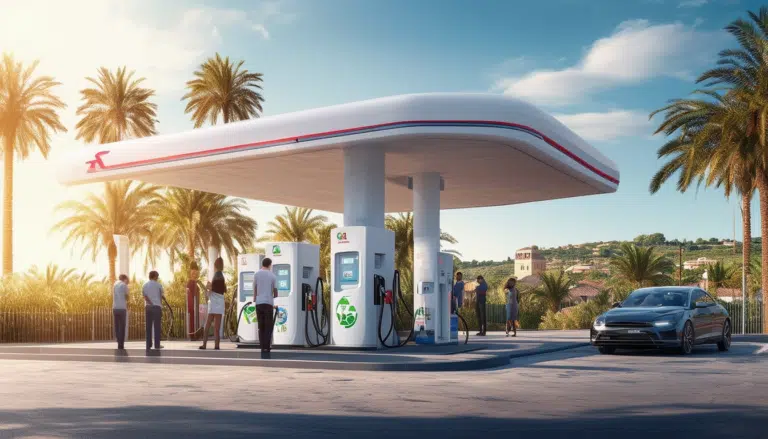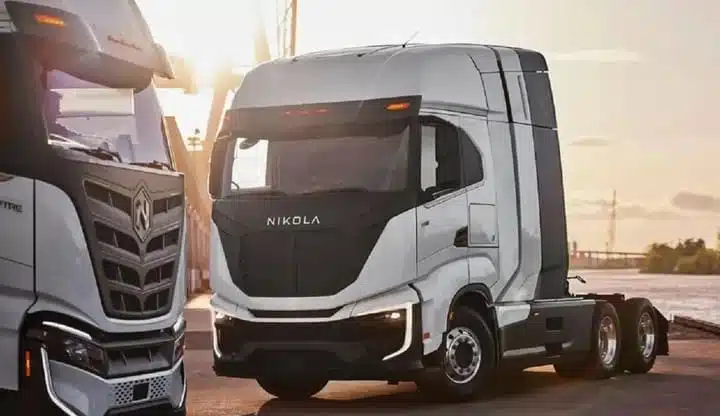The best travel practices to reduce gasoline usage
Currently, the need to adopt sustainable practices has become crucial, especially when it comes to traveling. Reducing the use of gasoline not only translates into economic savings but also contributes to the protection of the environment. Implementing responsible habits in our adventures and choosing alternative transportation methods can make a difference in our carbon footprint. Below are some effective strategies to optimize fuel consumption during travels.
Currently, sustainability and reducing gasoline consumption have become priorities for many travelers. Adopting responsible practices not only benefits the environment but can also bring significant economic savings. This article explores different effective strategies to optimize vehicle use on each trip, thus ensuring a more ecological and efficient experience.
Advance trip planning
One of the first steps to decreasing gasoline use is advance trip planning. By knowing the route and destinations, one can avoid wasting time in unnecessary traffic and reduce travel duration. Using navigation apps that offer real-time traffic information can be a great advantage, allowing for the selection of alternate routes that optimize fuel consumption. Additionally, leaving home during off-peak hours can make a big difference in the efficiency of the trip.
Efficient and conscious driving
The way one drives can have a significant impact on gasoline consumption. Adopting a smooth driving style is essential. This means avoiding sudden accelerations and abrupt stops, which not only helps save fuel but also extends the vehicle’s lifespan. Maintaining a constant speed, preferably using cruise control on highways, can help keep gasoline consumption lower. Furthermore, anticipating traffic conditions and reacting promptly can prevent unnecessary fuel consumption.
Regular vehicle maintenance
Conducting regular maintenance of the car is another key aspect of optimizing gasoline consumption. This includes checking and adjusting tire pressure, changing the oil, and cleaning filters, which ensures that the engine runs efficiently. A well-maintained vehicle not only consumes less fuel but is also safer and more reliable on the road.
Minimize weight and drag
The weight of the vehicle and its aerodynamics also influence fuel consumption. Avoiding excess load, such as heavy luggage or unnecessary items, can reduce the engine’s effort. Likewise, removing items like roof racks when not in use minimizes wind resistance, contributing to significant gasoline savings during trips.
Using technology to optimize consumption
Technology plays a crucial role in reducing gasoline consumption. There are numerous mobile applications that allow drivers to monitor fuel consumption, making it easier to track habits and expenses. Additionally, tools such as speed management and the use of eco-driving modes in modern vehicles can provide real-time tips for improving efficiency.
Alternatives to using the vehicle
Exploring alternatives to using the car is an excellent way to reduce gasoline consumption. More and more people are opting for public transportation, using bicycles, or carpooling for their commutes. These options are not only more sustainable but can also be more economical. If possible, organizing group trips or using ridesharing services can be an effective way to enjoy the journey while contributing to environmental care.
Consider alternative fuels
Finally, the choice of fuel type can also influence the effectiveness of the trip. Opting for quality fuels and considering alternative options, such as hybrid or electric vehicles, can be a wise decision. Additionally, staying informed about the latest advancements in automotive technology will be beneficial for those looking to reduce their dependence on gasoline in the future. For those interested in innovative vehicles, information is available about new models on the market.
By combining these tips and practices, every traveler can contribute to a more responsible and efficient use of gasoline, thus caring for both their budget and the environment during their adventures.
Reducing the use of gasoline during travels is a key goal for those looking to be more responsible with their environmental impact and expenses. Implementing efficient driving habits not only improves fuel economy but also contributes to sustainability. There are various strategies that can assist in this effort.
One of the best practices is the planning of routes. Using navigation applications that offer the shortest or least traffic routes can avoid unnecessary detours that increase gasoline consumption. Planning trips to avoid peak hours can also result in significant savings, making the journeys smoother.
Additionally, smoothing driving is essential. Accelerating and braking abruptly not only wastes fuel but also wears out vehicle components more quickly. Maintaining a constant speed, using cruise control on highways, and anticipating traffic movements are effective ways to improve vehicle efficiency.
Regular maintenance of the car also plays a crucial role in reducing consumption. Periodic oil changes, air filter checks, and ensuring that tires are inflated to the correct pressure favor optimal engine performance. A well-maintained vehicle consumes less fuel and is more efficient.
Finally, considering alternative transportation options like carpooling or using electric vehicles, instead of depending solely on a conventional car, can lead to significant gasoline savings. Adopting these approaches not only benefits the wallet but also helps protect the environment for future generations.






